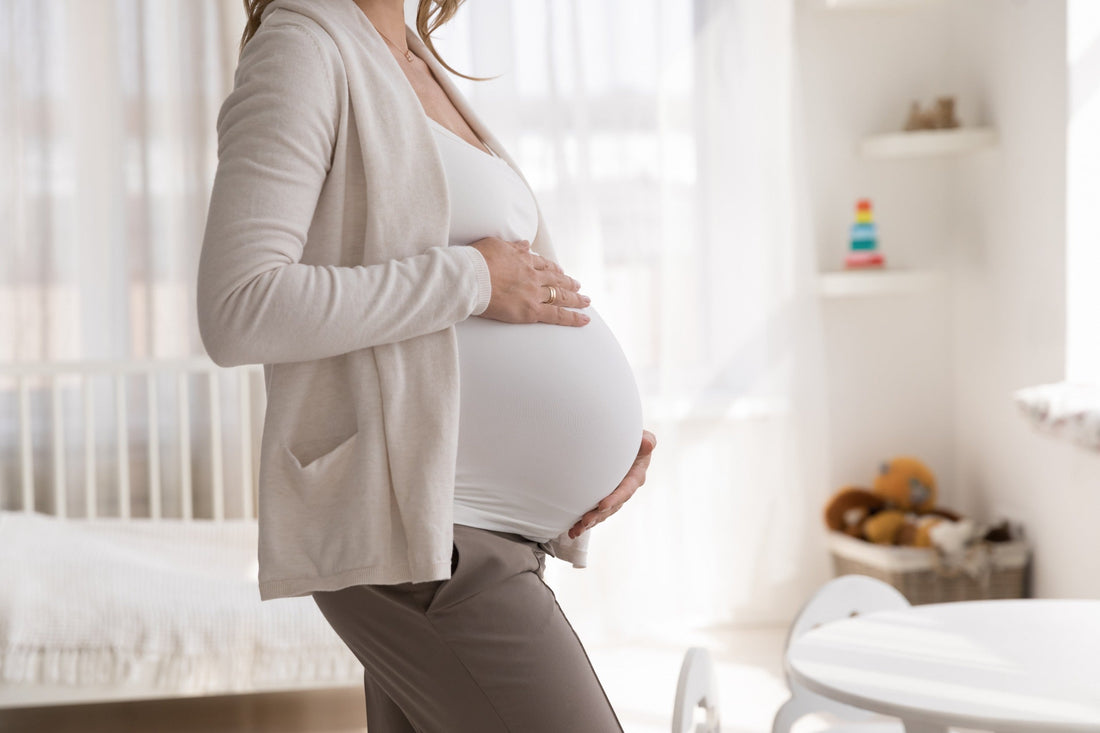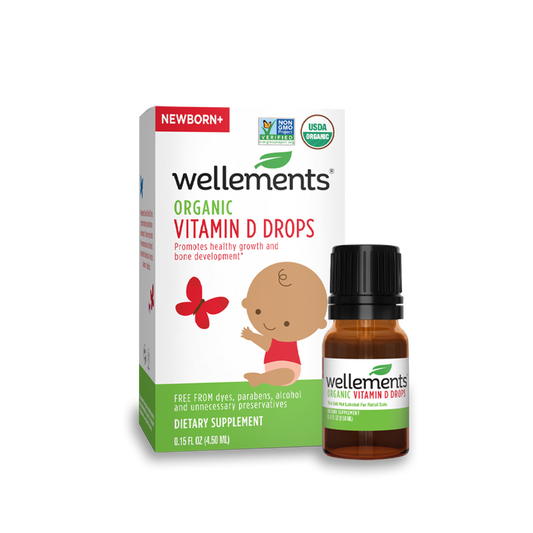Vitamin D Deficiency During Pregnancy: Everything You Need To Know
| updated:Share

Every human needs vitamin D. The crucial nutrient helps the body absorb calcium and phosphorus, aiding bone health and development. Also, the "sun" vitamin can help reduce cancer risks, infections, and inflammation.
While the nutrient is essential for human health, it is paramount to the health of pregnant women and their growing babies. Understanding the crucial role of vitamin D and how much of the nutrient is necessary to promote health is vital to pregnancy.
Importance of Vitamin D During Pregnancy
It is common knowledge that newborns need vitamin supplementation, such as Wellements Organic Vitamin D Drops, but what is less known is the critical role of vitamin D during pregnancy. According to recent research, a vitamin D deficiency during pregnancy can affect the health of your little one's bones and teeth. The research suggests that a lack of vitamin D in pregnant mothers can cause toddler cavities.
4.1 /
5.0
(90)
90
total reviews
Vitamin D Drops
Sale price
$11.99
The pivotal role of vitamin D — to maintain proper calcium and phosphorus levels in the body — pertains to developing babies in the womb. Also, the nutrient is essential in healthy skin, eyesight, and immune system development.

How Much Vitamin D Do You Need?
The American College of Obstetricians and Gynecologists recommends that pregnant and lactating women get a minimum of 600 IUs of vitamin D daily; not all organizations agree. The Endocrine Society, for example, suggests most adults — 19 and older — get between 400 and 1,000 IUs daily, depending on sun exposure. The Journal of Internal Medicine recommends that the average pregnant woman gets 1,000 IUs daily to compensate for lack of sun exposure.
Talk to your primary care physician to learn more about how much vitamin D you need. Every woman is unique, so your needs may be more or less than someone you know.
Best Foods High in Vitamin D
Getting enough vitamin D from food sources is challenging, so most medical professionals suggest spending time outdoors. Still, because some women are at greater risk of vitamin D deficiency, it is crucial to make positive dietary choices. The best sources of the nutrient include:
- Red meat
- Eggs
- Fatty fish (salmon, sardines, tuna, etc.)
- Fortified foods (cereals, plant-based milk alternatives, orange juice, etc.)
- Dairy products

Taking a Vitamin D Supplement
Many women do not worry about vitamin D deficiency because they assume their prenatal vitamins provide enough, but that is not likely the case. Women should take a vitamin D supplement and focus on eating vitamin D-rich foods.
While the average prenatal vitamin contains about 400 IUs, recent studies suggest a woman can take up to 4,000 IUs safely daily. Higher doses of vitamin D have benefits, including reductions in preterm births and infections.
How To Test for Vitamin D Deficiency
40% to 60% of the U.S. population is vitamin D deficient, including pregnant women. The primary symptoms of vitamin D deficiency include fatigue, bone aches, muscle weakness, hair loss, loss of appetite, depression, and nausea. Because some deficiency symptoms correlate with pregnancy, diagnosing based on symptoms alone is challenging.
You can ask your doctor to test for the condition if you suspect a vitamin D deficiency. The tests will include blood work.
Vitamin D is an essential nutrient, and pregnant and nursing mothers must receive enough of it to ensure their health and their babies. You can eat vitamin-rich foods, but a supplement is the most effective method outside sun exposure. Talk to your doctor to learn about specific dosage requirements.
Sources:
https://americanpregnancy.org/healthy-pregnancy/pregnancy-health-wellness/vitamin-d-and-pregnancy/
https://onlinelibrary.wiley.com/doi/full/10.1046/j.1365-2796.2000.00595.x
https://www.endocrine.org/news-and-advocacy/news-room/2020/joint-guidance-on-vitamin-d
https://www.thebump.com/a/vitamin-d-deficiency-during-pregnancy-could-lead-to-toddler-cavites-so-how-much-do-you-need



